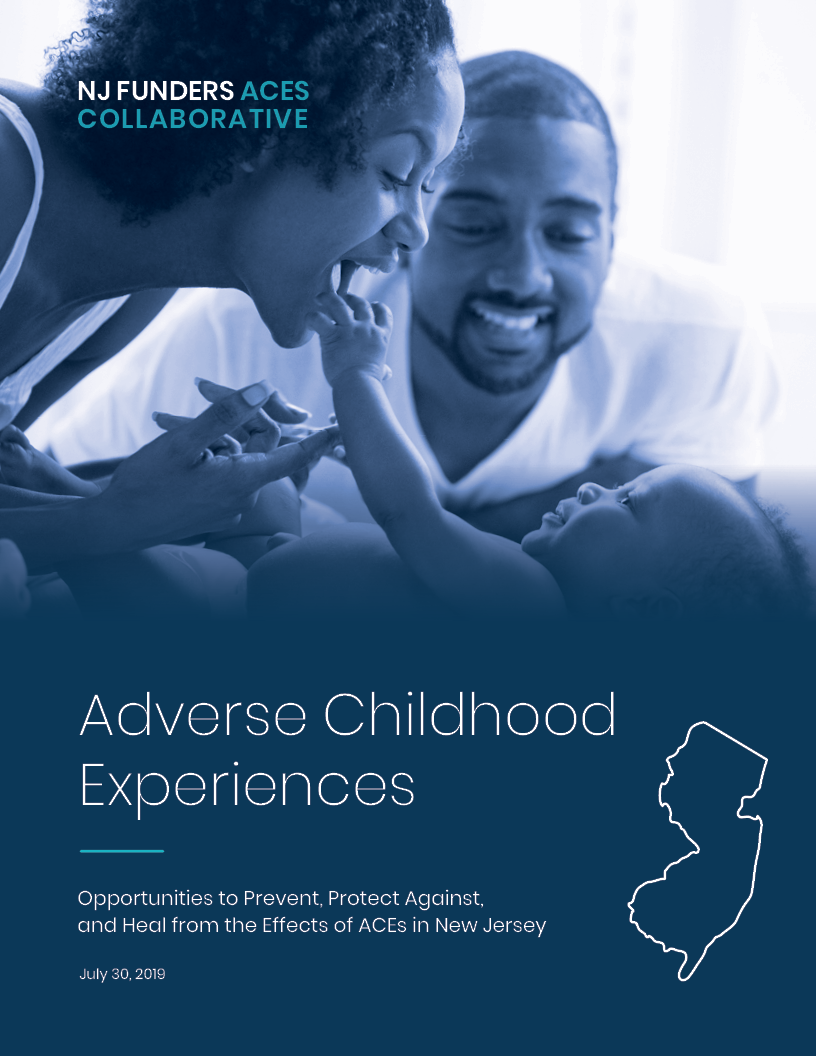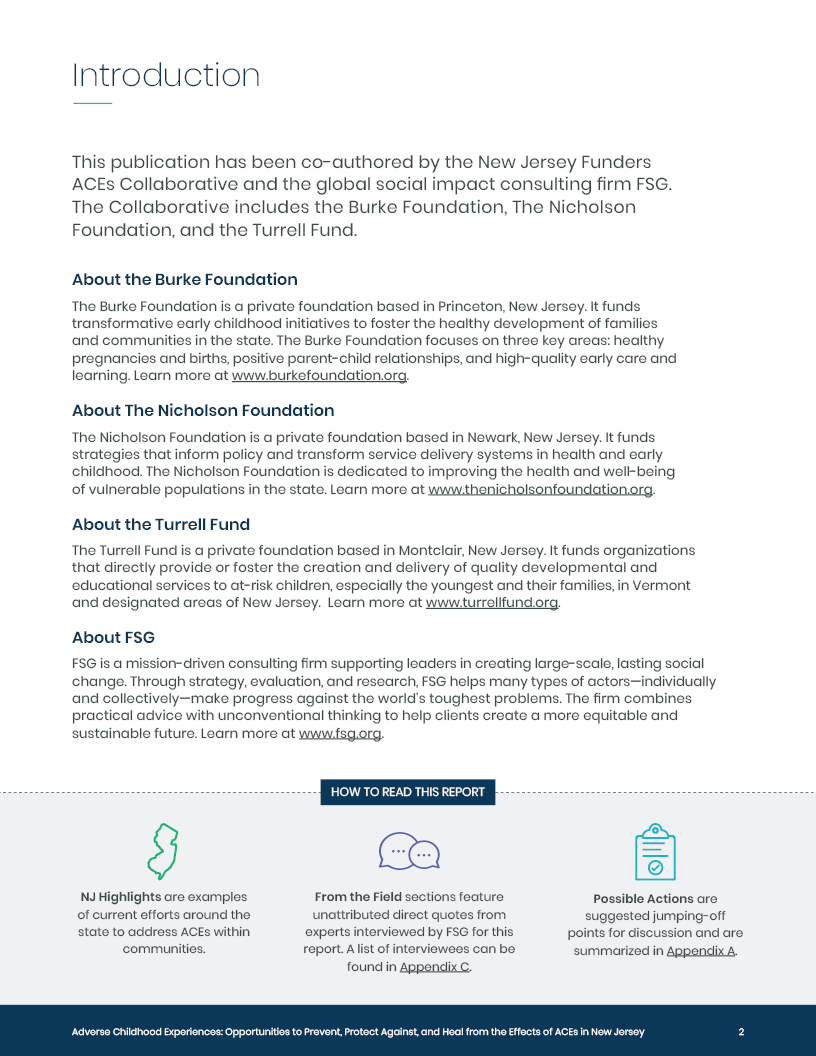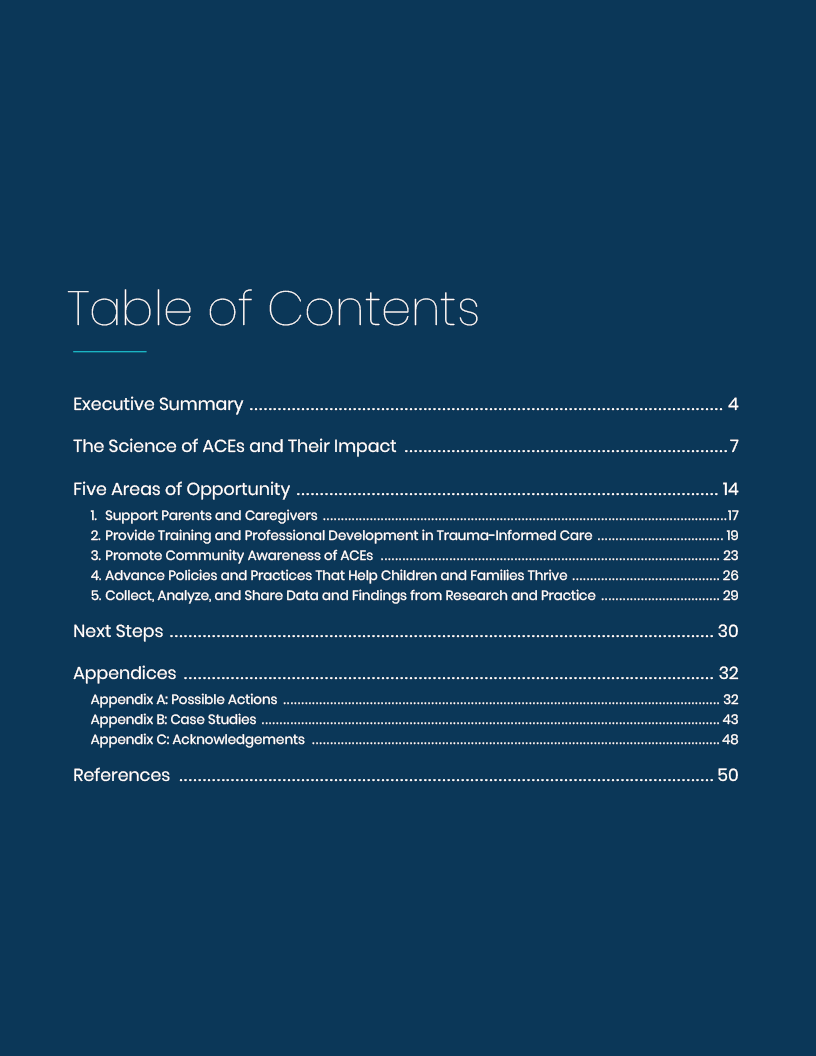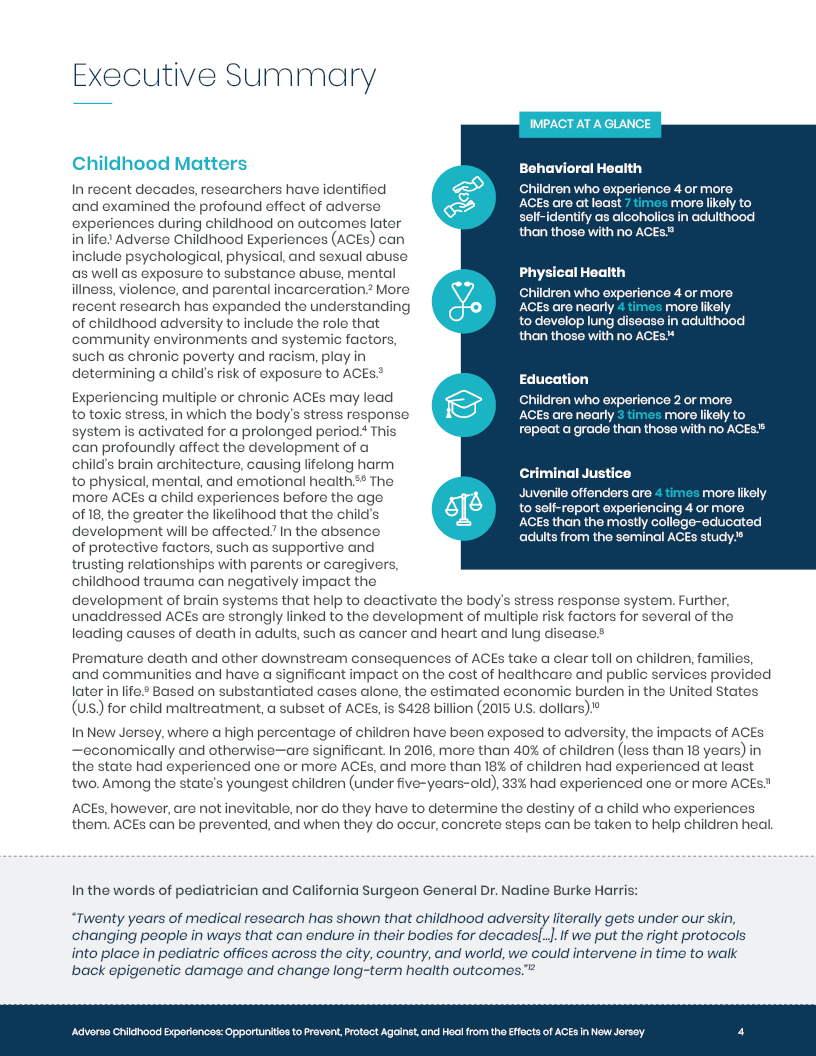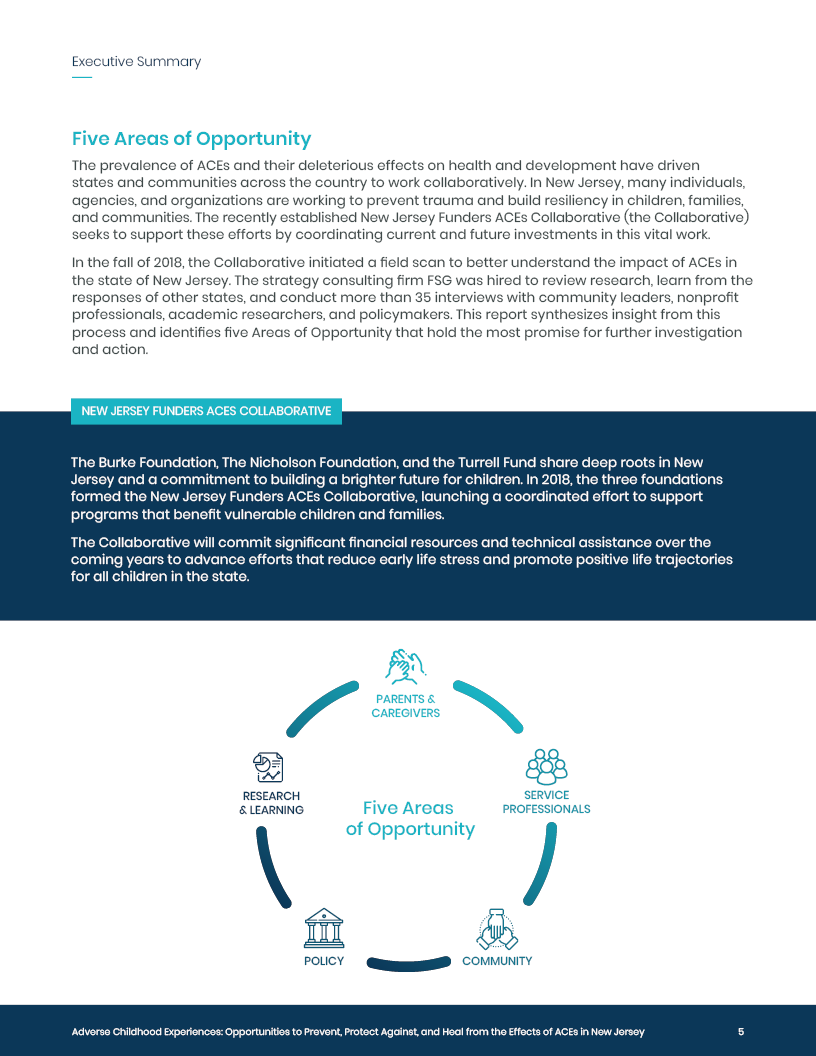GRANTEE SPOTLIGHT
Adverse Childhood Experiences (ACEs) Report
“We know from our work in child welfare that childhood adversity can contribute to social, emotional and behavioral challenges, generationally. Families need the public and private sectors to come together with strategies that promote healing and resilience through prevention and post-crisis clinical and non-clinical services.”
– Christine Norbut Beyer, Commissioner, New Jersey Department of Children and Families
From the Report
4 out of 10 children in New Jersey have experienced at least one ACE
Children who experience ACEs have a higher incidence of asthma, obesity, and cancer, and a greater chance of dying prematurely
Children who experience multiple ACEs are 3 times more likely to repeat a grade than those with no ACEs
Report Summary
Children affected by adverse experiences — domestic violence, poverty, substance abuse, incarceration, and systemic racism, among others — are seven times more likely to develop alcoholism as adults and four times more likely to become juvenile offenders than those with no Adverse Childhood Experiences (ACEs). In early childhood, the effects are even more profound, impacting a critical stage of brain development that could cause lifelong physical, mental, and emotional harm. In New Jersey, more than 40% of children under the age of 18 have experienced one or more ACEs, and more than 18% have experienced at least two. Children of color, those from low-income backgrounds, LGBTQ youth, and foster children, are at a higher risk of exposure to multiple ACEs
The Burke Foundation is addressing these Adverse Childhood Experiences for New Jersey’s youngest residents by outlining a statewide response to mitigate ACEs’ lasting effects on children’s health and well-being.
New Jersey Funders ACEs Collaborative, together with the Burke Foundation, the Nicholson Foundation, and the Turrell Fund, issued the report Adverse Childhood Experiences: Opportunities to Prevent, Protect Against, and Heal from the Effects of ACEs in New Jersey. The paper details challenges health providers and stakeholders face to address ACEs and lays out opportunities and actions for a statewide response.
The report highlights five key areas of opportunity in New Jersey:
-
1. Supporting parents and caregivers
-
2. Providing training and professional development in trauma-informed care
-
3. Promoting community awareness of ACEs
-
4. Advancing policies and practices that help children and families thrive
-
5. Collecting, analyzing, and sharing data and research
“This report shows the clear linkages between childhood adversity as the root cause of many short and long-term health, economic, and social challenges. We believe this work presents a real, urgent opportunity to make changes in the ways our systems work for families and children, and to develop a statewide coordinated response.”
– James Burke, President of the Burke Foundation
The report represents a starting point for statewide discussions about ACEs. Next steps include a series of stakeholder meetings to develop and finalize recommendations that will inform an ACEs Action Plan for New Jersey. During these meetings, stakeholders will take community voices into consideration throughout the process to ensure that participants understand how race, racism, and structural inequalities are inextricably linked to ACEs, health, and well-being.

